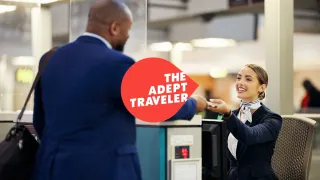Understanding ETIAS: Europe's New Travel Authorization System

As part of an ongoing effort to enhance border security and streamline entry procedures, the European Union has introduced the European Travel Information and Authorization System (ETIAS). This new system, expected to be fully operational by the end of 2023, will affect non-EU citizens who previously enjoyed visa-free entry into the Schengen Zone, including U.S. travelers. This article explores what ETIAS is, why it has been implemented, and how it will impact travelers from visa-exempt countries.
What is ETIAS?
The European Travel Information and Authorization System (ETIAS) is a pre-travel screening program designed to enhance security for the Schengen Zone, which comprises 26 European countries that have abolished passport and all other types of border control at their mutual borders. The system is similar to the U.S. Electronic System for Travel Authorization (ESTA), which assesses the eligibility of visitors to travel to the U.S. under the Visa Waiver Program. ETIAS is not a visa; rather, it is a travel authorization that allows visitors to stay in the Schengen Area for short stays of up to 90 days within a 180-day period.
Why is ETIAS Being Implemented?
The primary goal of ETIAS is to improve the security of EU countries by pre-screening travelers before they arrive at European borders. The system will help identify any risks associated with visitors traveling to the Schengen Zone, including issues related to irregular migration and security threats. By ensuring that all travelers pose no significant threat to the security or health of the Schengen Area, ETIAS aims to maintain and increase the safety of EU residents and visitors.
Who Needs ETIAS?
ETIAS will be required for citizens from all visa-exempt countries outside the EU. This includes U.S. citizens, who will need to obtain an ETIAS authorization before traveling to any of the countries in the Schengen Zone. It is important to note that ETIAS is mandatory for all ages; therefore, even infants will require an approved ETIAS authorization to travel.
How to Apply for ETIAS
The application process for ETIAS is designed to be straightforward and fully electronic. Travelers will need to fill out an online application form, which includes providing personal information, passport details, and answering questions related to security and health matters. The process also requires applicants to pay a fee, which is expected to be relatively low (approximately €7 for applicants over 18 years old). Once submitted, the approval process is quick, with most applications expected to be processed within minutes. However, some might take up to several days if further review is needed.
What to Expect When Traveling with ETIAS
Once approved, an ETIAS authorization is valid for three years or until the passport used during the application expires, whichever comes first. It allows for multiple entries into Schengen countries, with each stay lasting no more than 90 days within a 180-day period. Travelers will need to present the passport that is linked to their ETIAS authorization when entering the Schengen Zone. It is crucial to ensure that all information provided during the application matches exactly with the passport details, as discrepancies may lead to issues at the border.
Final Thoughts
The implementation of the European Travel Information and Authorization System (ETIAS) represents a significant change for U.S. and other visa-exempt travelers to Europe. By understanding the requirements and application process of ETIAS, travelers can ensure compliance with the new regulations and avoid any potential issues during their trips. With ETIAS, the European Union aims to create a safer travel environment, ultimately benefiting both visitors and residents within the Schengen Zone. As with any new travel requirement, consulting with a travel advisor can provide additional guidance and assistance, ensuring a smooth transition to these new travel norms.
